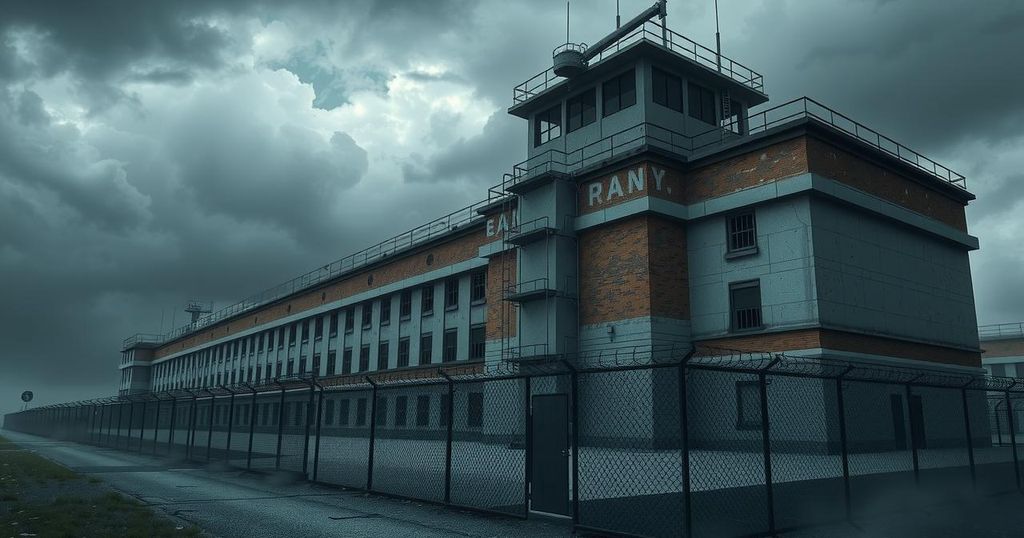Crime
ABC NEWS, ASIA, CRIME, CUBA, EL PASO, EL SALVADOR, ES, ESCALONA, EXTRADITION, IMMIGRATION AND CUSTOMS ENFORCEMENT, JUSTICE, LAW, MAIKER ESPINOZA ESCALONA, NORTH AMERICA, PHILIPPINES, PRISON SENTENCE, RAIDA, SOUTH AMERICA, TRE, TREN DE ARAGUA, TRUMP, U. S, U. S. IMMIGRATION AND CUSTOMS ENFORCEMENT, UNITED STATES, VENEZUELA, VIOLENCE, YO
Amira Khan
0 Comments
Deportation of Alleged Venezuelan Gang Members to El Salvador: Stories of Misidentification and Human Rights Concerns
The Trump administration has deported over 200 alleged Venezuelan gang members to a notorious mega-prison in El Salvador, sparking controversy and concern regarding their gang affiliations and safety. Many deportees, supported by their families, contest the allegations and claim no criminal records. Cases presented involve individuals seeking asylum and fleeing violence, indicating significant human rights dilemmas surrounding these deportations.
In recent developments, the Trump administration deported over 200 alleged Venezuelan gang members to El Salvador, where they are now held in a notorious mega-prison. Family members and legal representatives have vehemently disputed claims of gang affiliation, leading to concerns over the safety and future of those deported. An official from the U.S. Immigration and Customs Enforcement highlighted the lack of criminal records for many of these individuals, raising questions about their classification as terrorists.
Maiker Espinoza Escalona was deported on March 30 and had initially entered the U.S. seeking asylum with his partner and child. His family has denied allegations of gang involvement, with his mother questioning the accuracy of the claims. His sister asserts that he pursued a career in barbering, stating that previous tattoos may have led to his detention.
Jose Franco Caraballo Tiapa, another deportee, was sent to El Salvador on March 15 after a routine ICE check-in. His wife shared that he was detained despite attending all scheduled appointments and possessing no criminal record. The couple’s asylum situation turned chaotic, leading to his present confinement in El Salvador’s mega-prison.
Francisco Garcia Casique, also deported on March 15, initially sought a better future in the U.S. He was detained after a routine ICE appointment and, despite being released with an ankle monitor, was soon recognized in a social media post following his deportation to El Salvador. His brother described their plight as a nightmare.
Kilmar Armando Abrego Garcia faced deportation due to what officials claimed was an administrative error. Having fled gang violence in 2011, he had protected legal status and a family in the U.S. Attorneys for Abrego Garcia contend that he has no links to any gang and challenge the Trump administration’s accusations without substantial evidence.
Jerce Reyes Barrios, a professional soccer player, was also sent back on March 15. His attorney contends that Barrios faced wrongful accusations based on a tattoo that was misinterpreted as gang-affiliated. Despite his background as a respected children’s soccer coach, Barrios has found himself unjustly labeled and detained. Officials defended his removal, citing their reliance on various law enforcement methods.
The deportation of these individuals raises significant concerns regarding the accuracy of gang affiliation claims and the methods used by immigration officials to identify potential threats. Family accounts reveal personal stories of individuals seeking a better life and highlight fears regarding their treatment and prospects in El Salvador’s mega-prison. Continued scrutiny and advocacy are essential in protecting the rights of those who find themselves caught in the complexities of immigration policy.
Original Source: abcnews.go.com




Post Comment